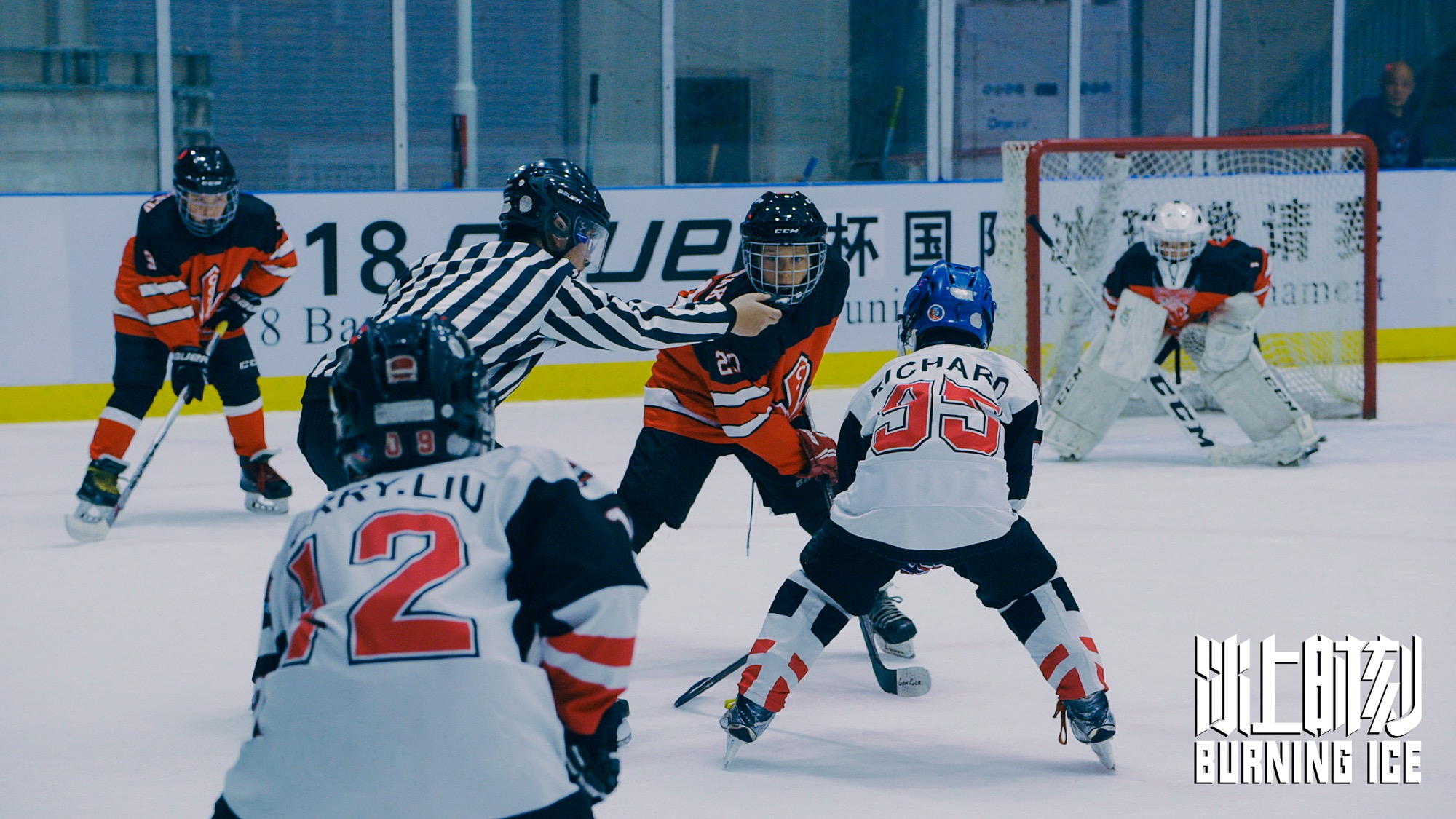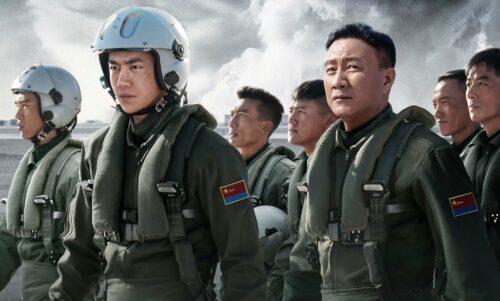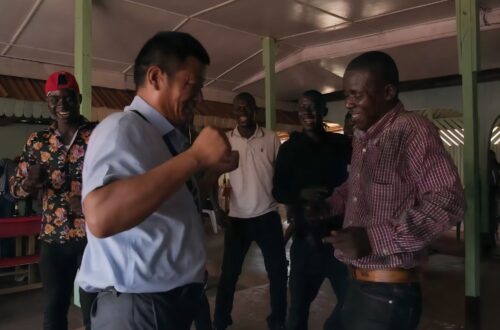‘Burning Ice’: Beijing kids with big hockey dreams
Following three middle-class Beijing families and their kids’ enthusiasm for ice hockey, Liu Hanxiang’s documentary is a meditation on the role of parents in today’s China.

In the opening minutes, over a scene of a bustling Beijing thoroughfare, we hear the televised voice of IOC President Thomas Bach announcing that the 2022 Winter Olympics is to be awarded to Beijing. With its timely arrival in light of those Games next month, Burning Ice (冰上时刻 bīng shàng shíkè), a documentary from director Liú Hànxiáng 刘汉祥, provides an intimate look at three middle-class families and their nine-year-old sons who play for a junior hockey team in Beijing, each with big dreams for a future on the rink.
On the surface, ice hockey is perhaps a peculiar sport for Chinese kids to gravitate toward. Largely without an established presence in China, the nicheness of hockey reflects the much greater focus in China toward sports of the Summer Games, where the country’s athletes have emerged particularly dominant.
Nevertheless, interest has picked up since Beijing was awarded the Winter Games back in 2015. A part of it has to do with the enthusiasm expressed by President Xí Jìnpíng 习近平 himself, who told a Russian interviewer in Sochi in 2014 that he enjoyed “watching ice hockey games, speed skating, figure skating and freestyle skiing,” with hockey being his favorite. In state media-produced promotional videos for the 2022 Games, Xi is seen telling a group of junior players that “China’s hopes are pinned on your young generation.”
For the documentary’s three young aspirants, they have their sights set high and practice hard, hoping for the chance to turn professional. One of the kids, Qu Ruichen, has a quilt stitched with the logos of NHL teams and explains that his dream is to become an NHL star and eventually carve his name on the Stanley Cup.
Yet as the film progresses, viewers come to realize that the documentary at its core isn’t about hockey, per se. Rather, the sport is a vehicle for introspection on Chinese parenting among a rising middle class determined to give their children an opportunity-rich upbringing.
Ferrying their sons to and from hockey practice in their Audis and BMWs, the three Beijing families are representative of the recently-minted middle class in China’s first-tier cities, eager to use their means to facilitate their kids in the pursuit of diverse extracurricular interests. It is not an easy endeavor, as the film shows: practice sessions with foreign coaches and equipment costs, from skates to pads, are expensive, and looking after the kids’ needs on and off the rink requires a substantial investment in time and energy.
What keeps the parents motivated? One austere father, who did not have good physical education opportunities growing up and constantly scolds his son for bad performances on the ice, reflects that “maybe it’s a habit of Chinese parents inadvertently placing their own unfulfilled dreams on their children.” In a different vein, another parent hopes that sport will give her son a more well-rounded upbringing and build character.
Central to the documentary is uncertainty around the kids’ future. How will the parents balance their children’s hockey ambitions with the traditional importance of education?
The film probes these questions: What is the role of parents in contemporary China? To guide their children in the way they know best, by drawing on their own experiences, or to simply support them to do what they are passionate about, whatever that might be? In their reflections to the camera, the parents ask themselves: isn’t the point of their hard work and the means they’ve acquired to give their kids the freedom that they themselves never had, including the option of pursuing a different path than the traditional pipeline of a university degree, followed by stable employment?
It will also be interesting to see how Burning Ice, which debuted in Chinese theaters on January 7, is received by domestic audiences, being a conspicuously outward-facing film in an era when Chinese public culture is increasingly inward-looking. (It’s unclear as of now whether the film will get an international release.) As the documentary shows, the status of hockey as a foreign-dominated sport without a strong presence in China means that parents who want to give their kids the best chance to succeed are incentivized to send them to youth development academies in Russia, Canada, or the U.S., often causing families to be split up as the mother accompanies the child abroad. At a time when public discourse in China trends toward assertions that domestic offerings — whether in education, consumer goods, or quality of life — are just as good if not better than those in the West, it is notable that for the families of Burning Ice, the land of opportunity and the chance of fulfilling dreams remains overseas.
As a departure from mainstream “positive energy” (正能量 zhèng néngliàng) productions featuring unambiguously uplifting themes, Burning Ice is a thoughtful, meditative look at sport and family in contemporary China.






